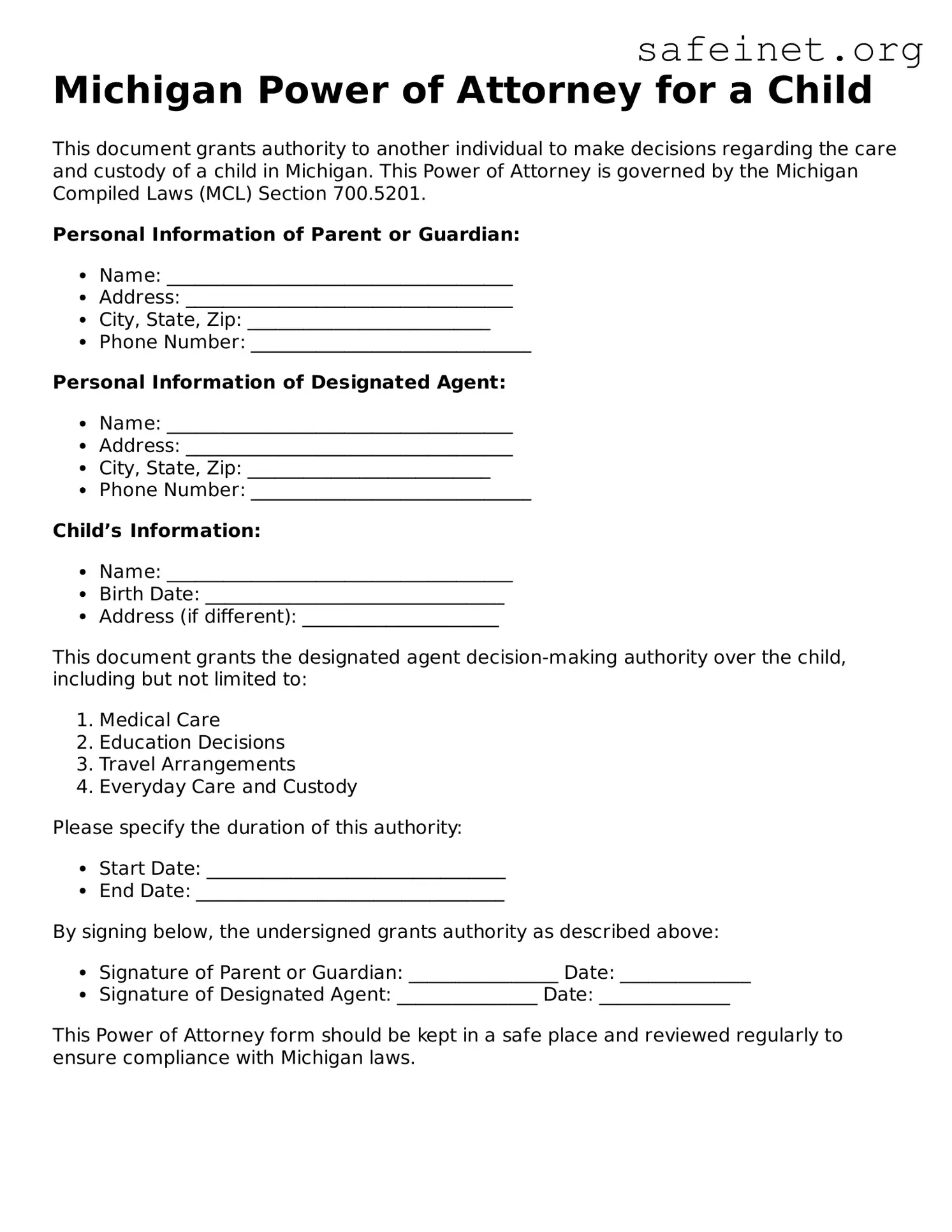What is a Michigan Power of Attorney for a Child form?
The Michigan Power of Attorney for a Child form allows a parent or legal guardian to appoint another person to make decisions on behalf of a minor child. This can be useful for situations where the parent or guardian is unavailable due to travel, medical conditions, or other reasons. The appointed person, known as the agent, can take care of the child's everyday needs, medical decisions, and other responsibilities as outlined in the document.
When should I use a Power of Attorney for my child?
This form is particularly useful when a parent or guardian is unable to care for their child temporarily. For example, if a parent travels frequently for work or needs to undergo medical treatment that requires time away from home, this document ensures that someone trusted can take over parental duties. It can also be beneficial in emergency situations when immediate decisions are needed.
How do I fill out the form?
Filling out the form involves providing specific information about both the parent or legal guardian and the appointed agent. You will need to include names, addresses, and contact information. Additionally, specify the scope of authority granted to the agent, which might include medical decisions, education-related decisions, or consent for certain activities.
Is the Power of Attorney for a Child form permanent?
No, this form does not create a permanent arrangement. It is intended to be a temporary measure. The authority granted can be set for a specific duration, or it can end when a specific event occurs, such as the parent's return home or other defined circumstances. The parent or guardian can cancel it at any time, provided they do so in writing.
Do I need to have the document notarized?
While notarization is not strictly required in Michigan for this form to be valid, it is highly recommended. A notarized document adds a level of authenticity and helps prevent any potential disputes regarding the validity of the Power of Attorney. It's advisable to have witnesses present during the signing for added security.
Can the appointed agent make medical decisions for my child?
Yes, if specified in the form, the appointed agent can make medical decisions. It is crucial to clearly outline in the Power of Attorney which types of medical decisions are permissible. This could include decisions about medical treatments, surgeries, or medications. Keeping the child's healthcare provider informed about the arrangement is also wise.
What happens if I do not have a Power of Attorney for my child?
If no Power of Attorney is in place, and a situation arises where decisions need to be made for your child while you’re unavailable, it may complicate matters. In emergencies, medical professionals may take action to preserve life regardless of legal permissions, but this could lead to additional complications for long-term care and decision-making.
Can I revoke the Power of Attorney once it is established?
Absolutely. A parent or guardian can revoke the Power of Attorney at any time by providing written notice to the agent and any relevant parties, such as schools or medical providers. It’s best to do this in a manner that ensures everyone involved is aware of the change. Keep a copy of the revocation for your records.
Where can I find the Michigan Power of Attorney for a Child form?
You can typically find this form on the Michigan government or judiciary website. Many legal assistance sites provide templates as well. Ensure that the form you use is the most current version and complies with Michigan state laws regarding child custody and care.
